1 January 1941
The Royal Air Force raid
the Focke-Wolf Aircraft Production plant south of Bremen,
Germany.
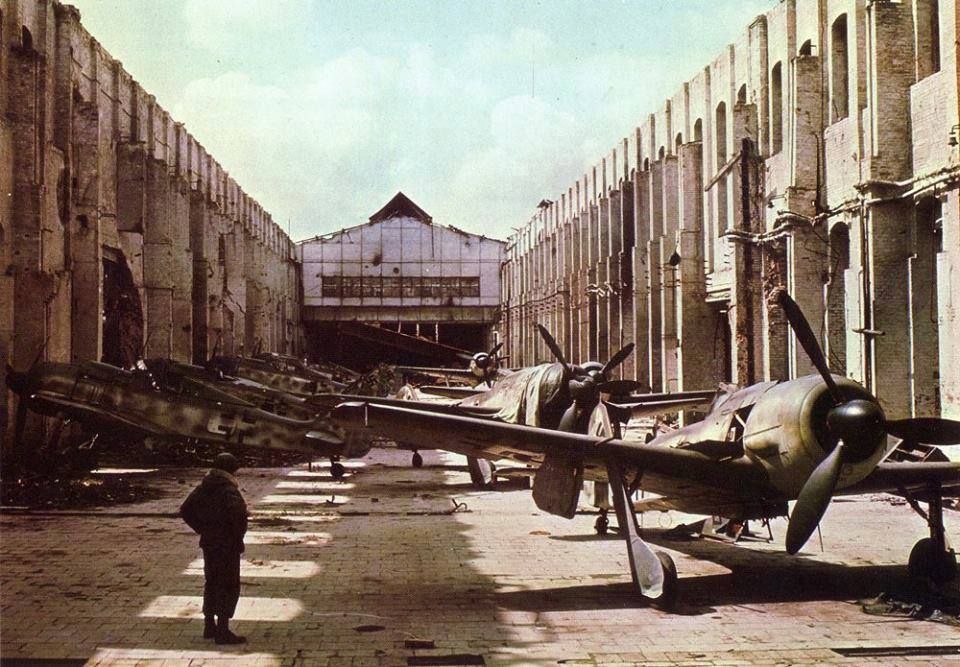 |
2 January 1941
The Luftwaffe bomb Dublin
in neutral Ireland.
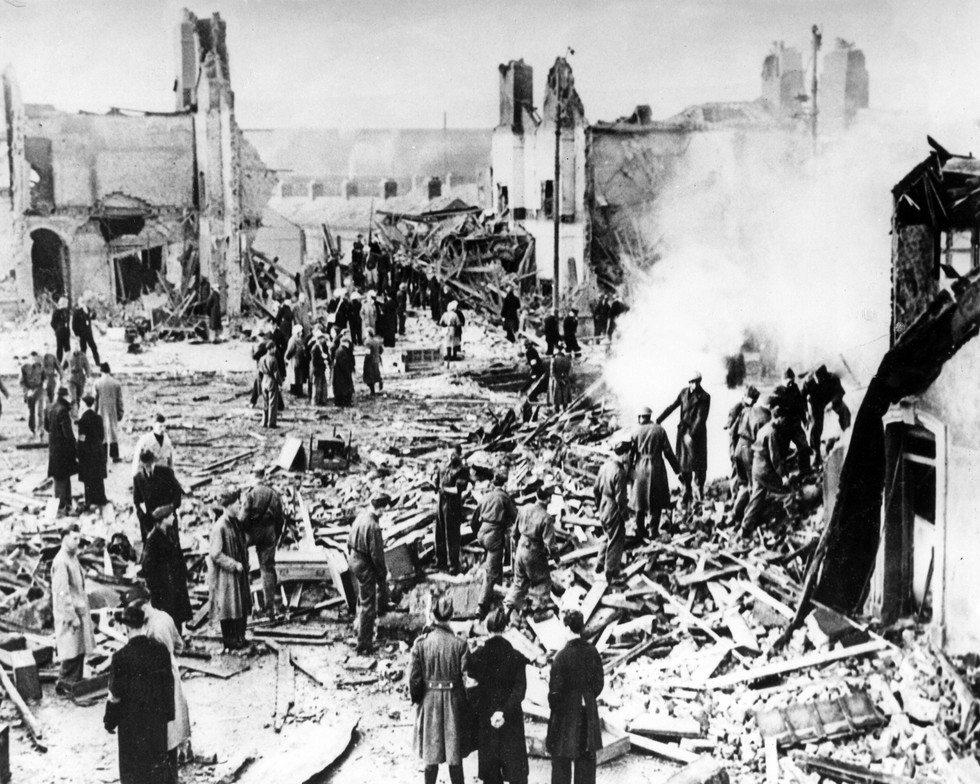 |
3 January 1941
In the Western Desert the
Battle of Bardia began when Allied forces attacked the Italian
held fortress of Bardia in Libya.
A twelve hour long bombing raid took place over Bristol.
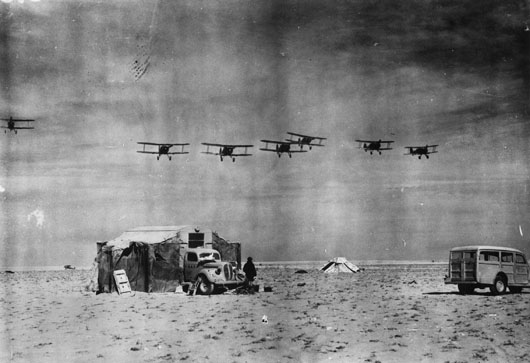
|
4 January 1941
Allied forces raid Bardia
and took many Italian troops prisoner of war.
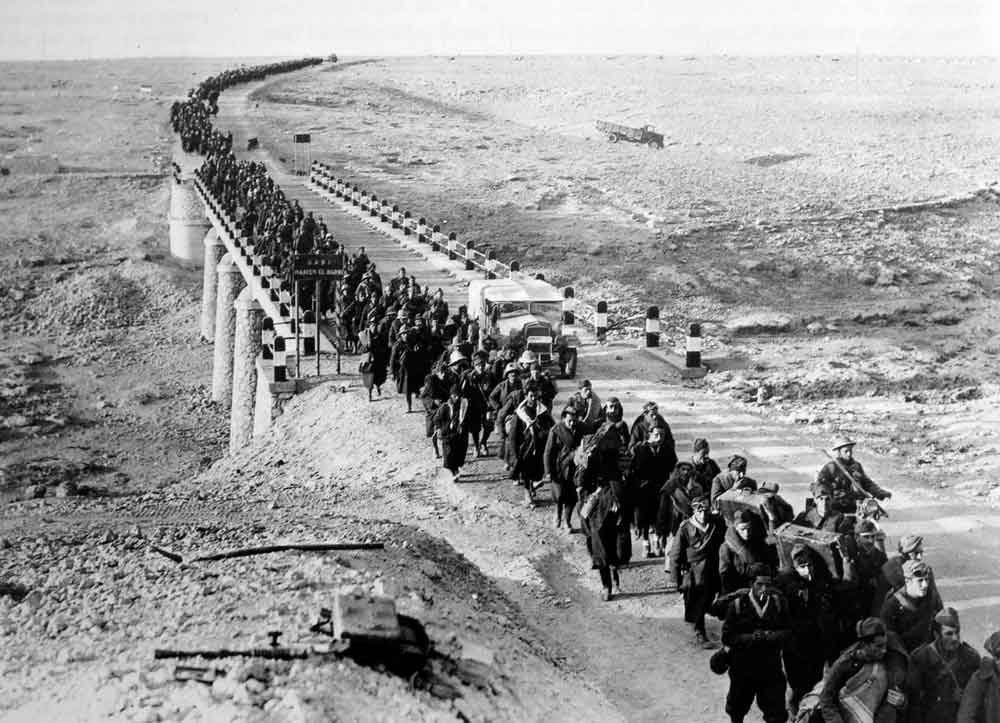 |
5 January 1941
The last of the Italian
forces in Bardia surrendered
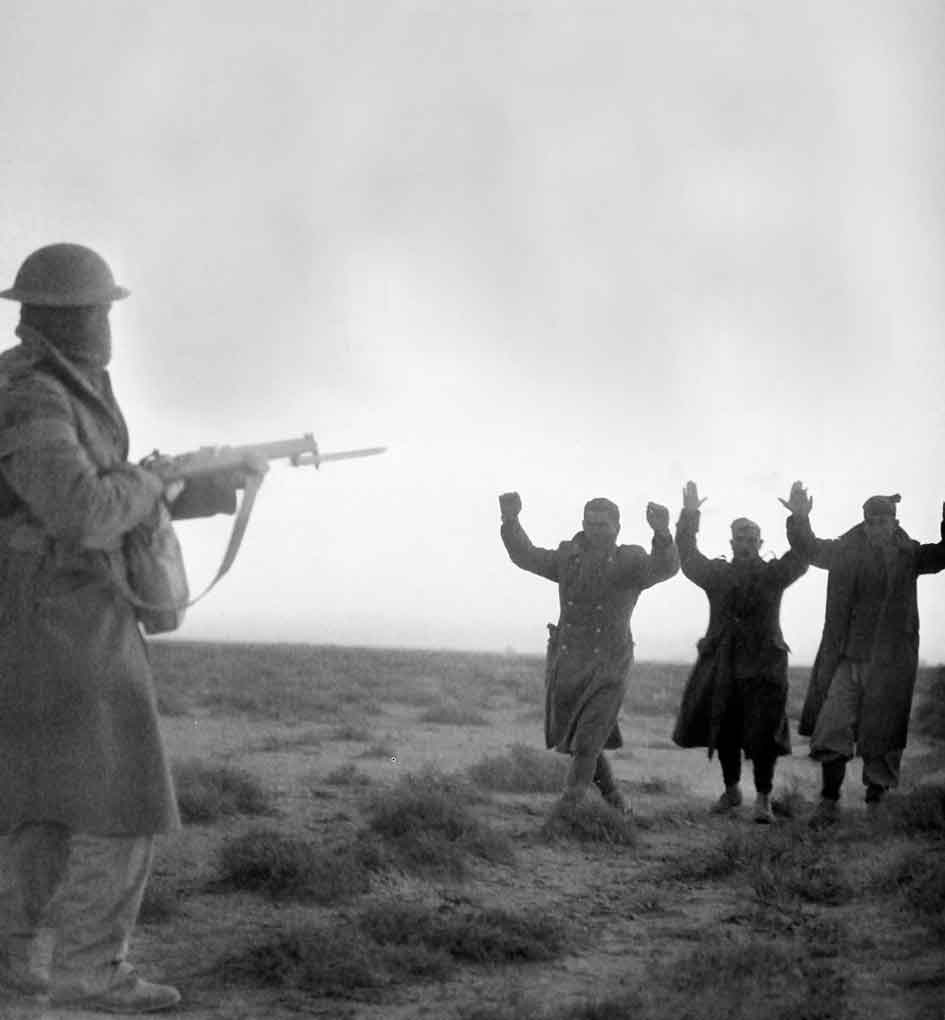 |
6 January 1941
In the 1941 State of the
Union address United States President Franklin D. Roosevelt
proposed four fundamental freedoms that people "everywhere in
the world" ought to enjoy:
Freedom of speech
Freedom of worship
Freedom from want
Freedom from fear
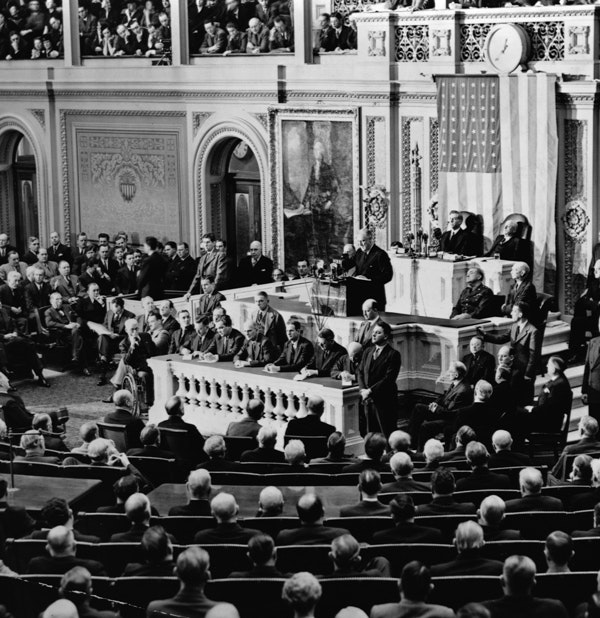
|
7 January 1941
A Japanese admiral
presented the minister of the Navy ideas for a war against the
USA, proposing a crippling first strike with an air attack on
the US fleet at Pearl Harbour.
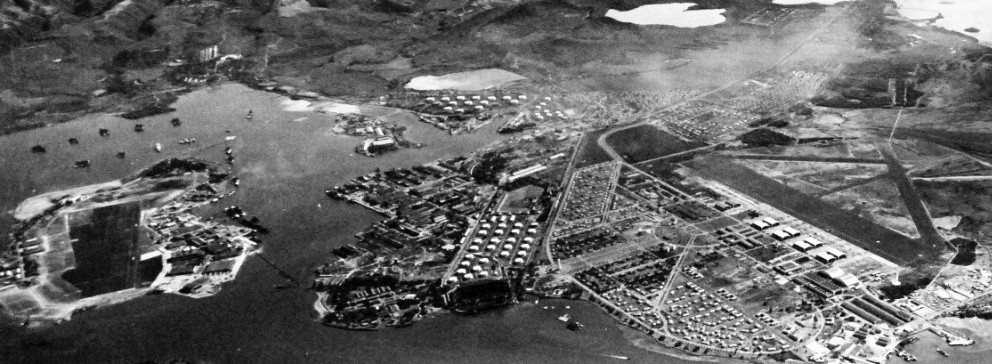 |
8 January 1941
The Royal Air Force bombed
Naples
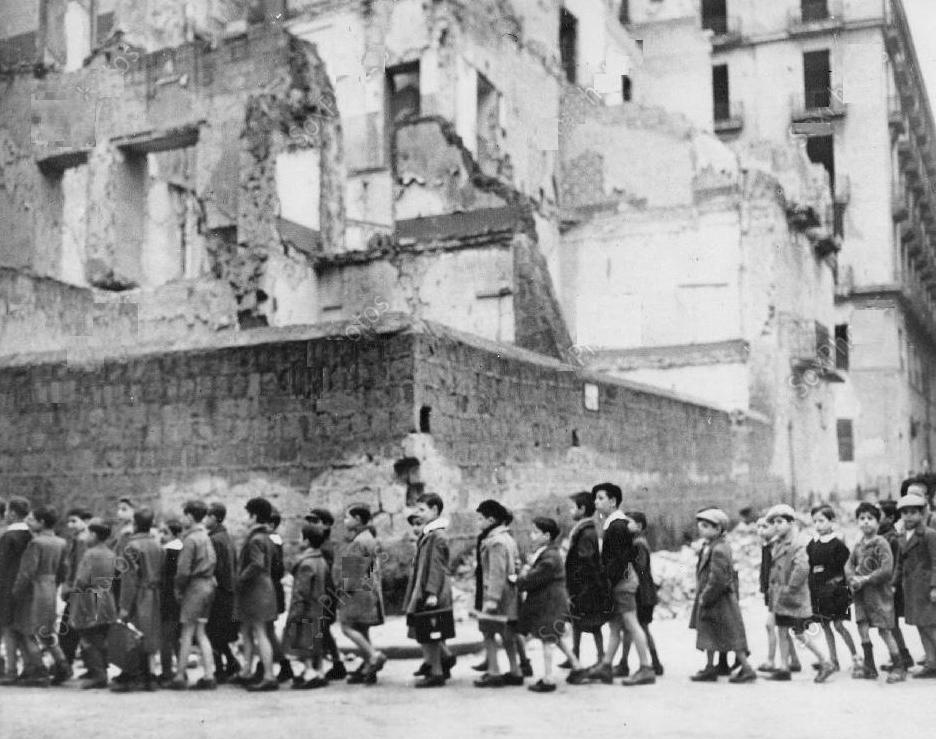 |
9 January 1941
The German leader held a
conference with his generals to discuss plans to attack the
Soviet Union.
The AVRO Lancaster four engine bomber had its first flight.
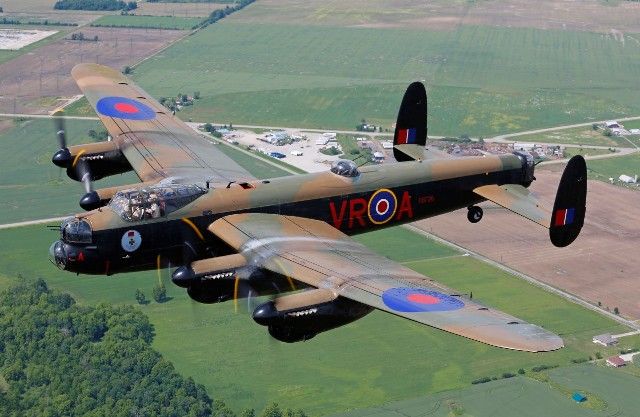 |
10 January 1941
Britain began Operation
Excess, a series of supply convoys to Malta, Alexandria and
Greece. HMS Illustrious was severely damaged by Stuka bombers as
it escorted a convoy to Malta.
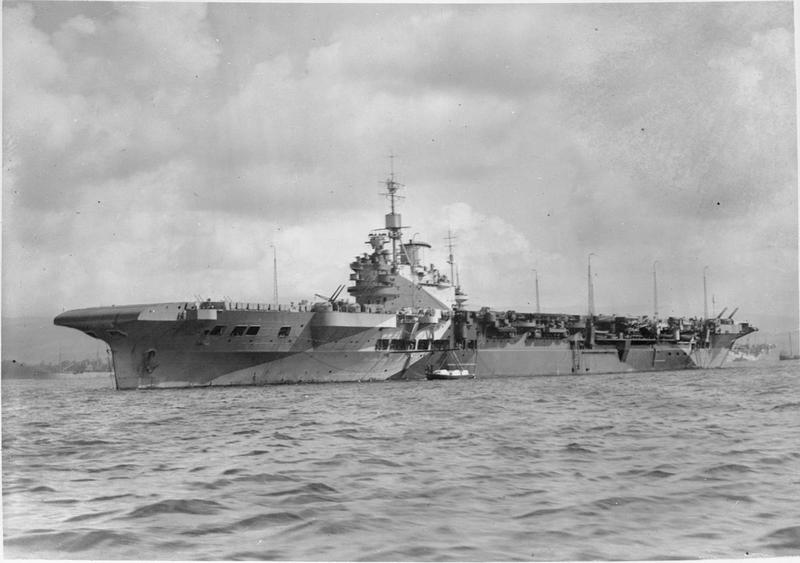 |
11 January 1941
Operation Excess was
complete with all the convoyed freighters reaching their
destinations, however the light cruiser HMS Southampton, was
bombed and sunk off Malta by the Luftwaffe.
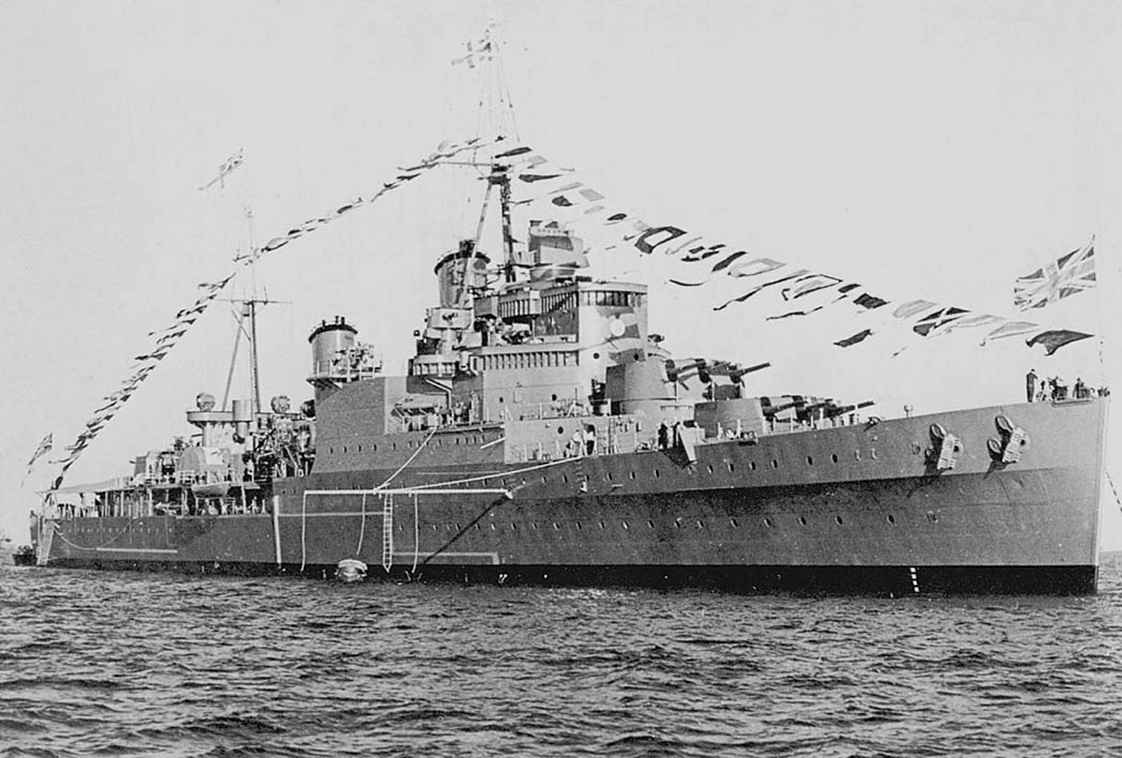 |
12 January 1941
British and Australian
troops, surrounded the Italian held strategic port of Tobruk in
Libya.
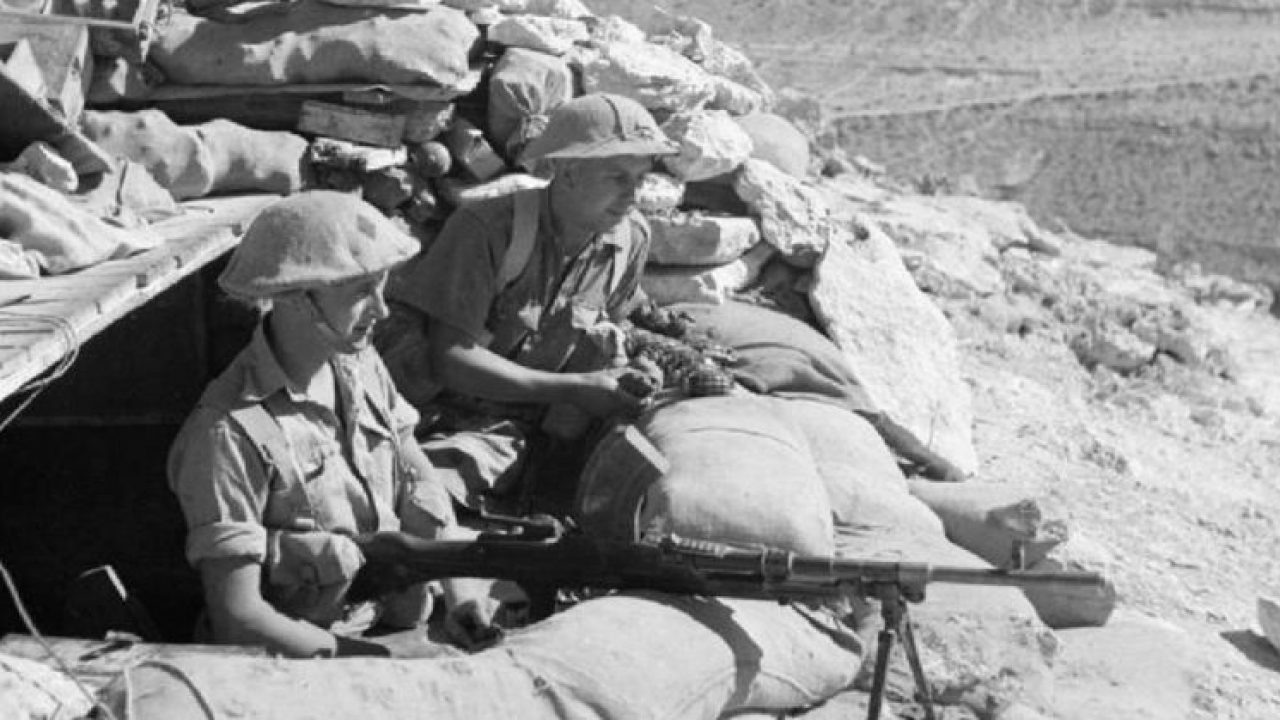 |
13 January 1941
The Royal Air Force
attacked Ostend, Belgium and the submarine base at Lorient,
France.
The Luftwaffe bombed Plymouth killing 26 people.
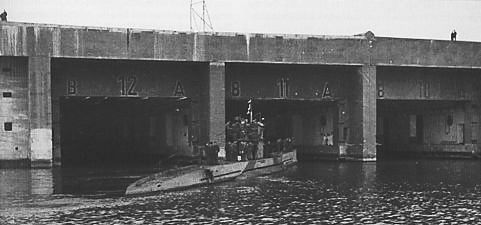 |
14 January 1941
The British government
announced price controls to prevent food profiteering on more
than 20 items including coffee, rice, biscuits and jelly.
Former Belgian Justice Minister suggested in the BBC Radio
Broadcast that Belgians use a ‘V’ sign as a symbol of
resistance. Within a week ‘V for Victory’ sign appeared on walls
in Belgium, northern France and Holland.
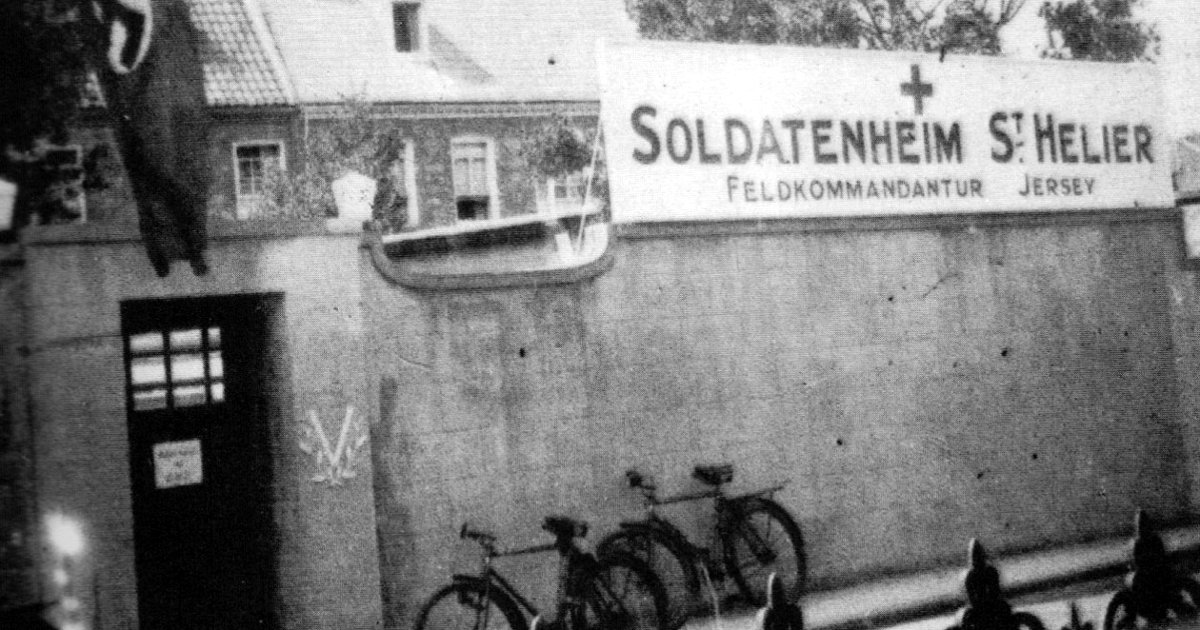
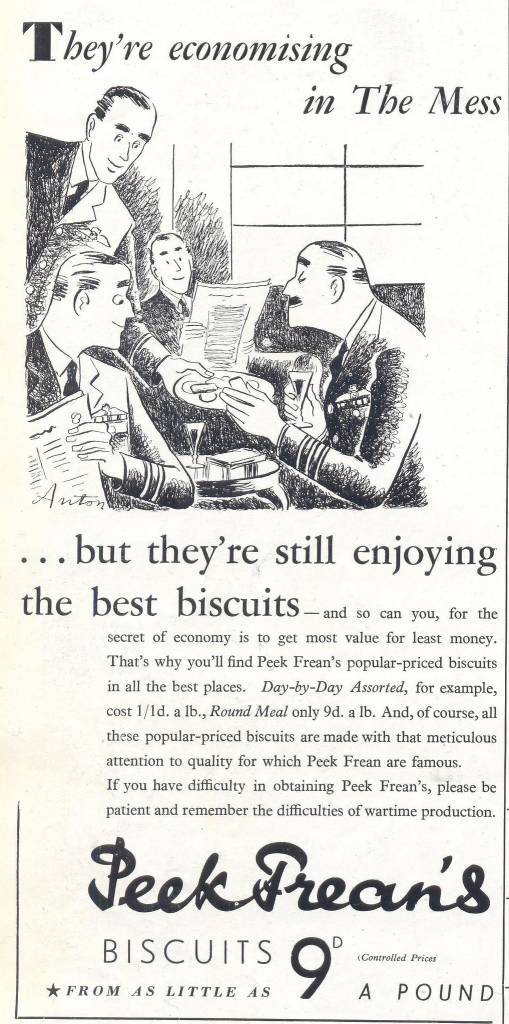 |
15 January 1941
Royal Air Force Bombers
attacked Wilhelmshaven and Emden.
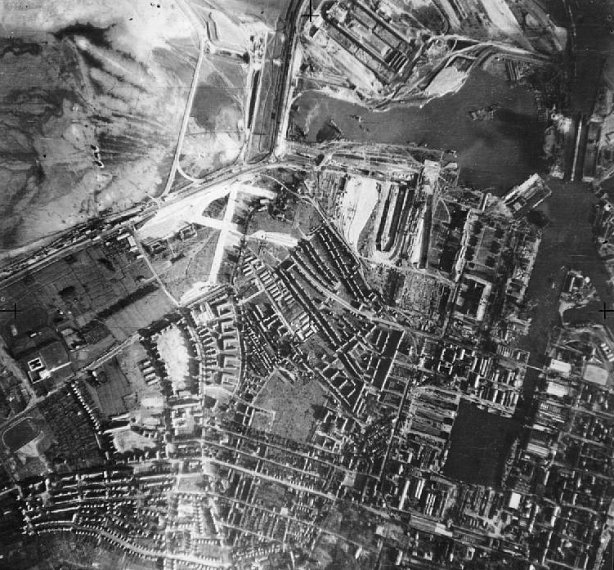 |
16 January 1941
The Germans bombed Malta
for the first time, killing 50 people, destroying 200 buildings.
The British aircraft carrier HMS Illustrious was hit and damaged
in the Grand Harbour, Valetta.
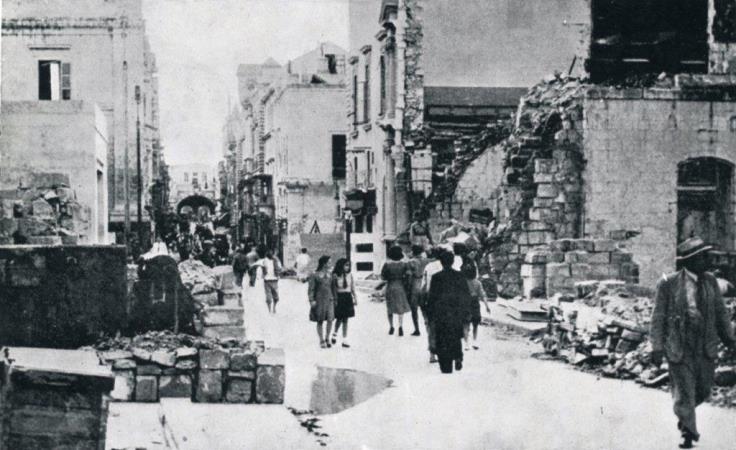 |
17 January 1941
The British troopship
Almeda Star was sunk north of Rockall by the German submarine
U-06. All 360 people on board were lost, including 142 members
of the Fleet Air Arm on the way to Royal Naval Air Station
Piarco on Trinidad
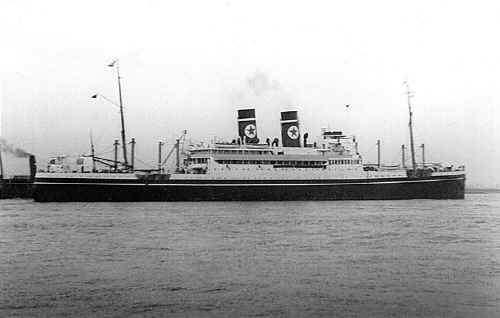 |
18 January 1941
The Chief Constable of
Lancaster reported that on the recommendation of the Home
Office, the Home Guard, as a temporary measure, will be
available to assist the Fire Brigade in dealing with incendiary
bombs, and that it would be necessary to provide beds for
members of the Home Guard undertaking the duty at Phoenix Street
Drill Hall.
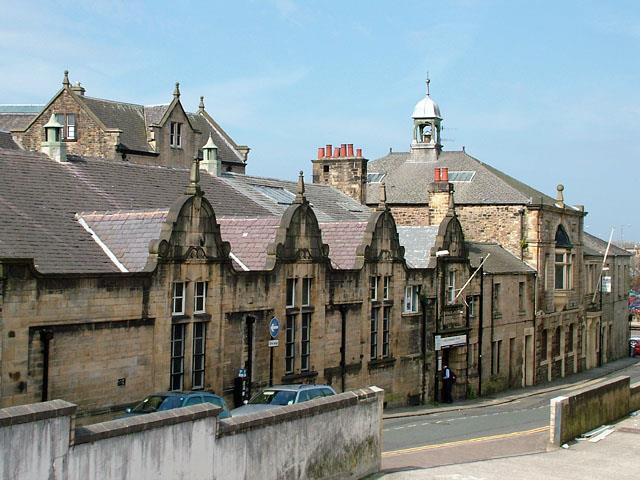 |
19 January 1941
4th and 5th Indian
Division and units of the Sudan Defence force launched attacks
on Italians in Eritrea, Somaliland and Ethiopia.
Adolf Hitler met with Mussolini and agreed to help the Italians
in North Africa.
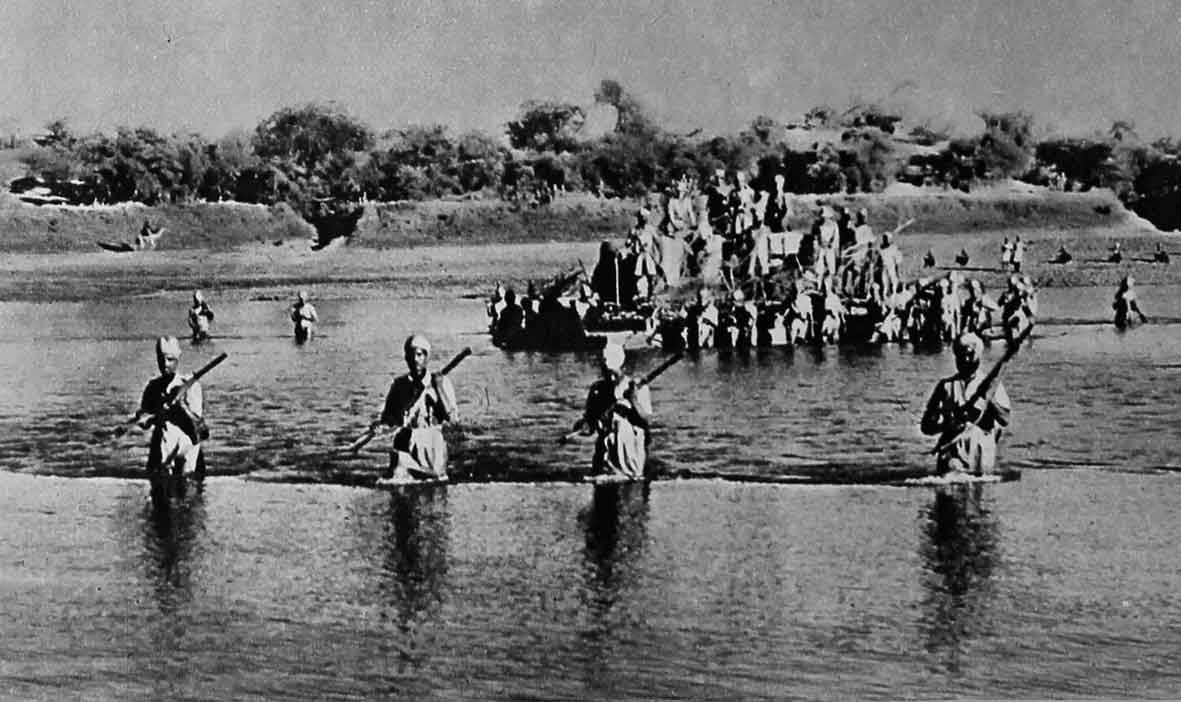
|
20 January 1941
Mussolini, the Italian
leader consented to German troops entering Italy.
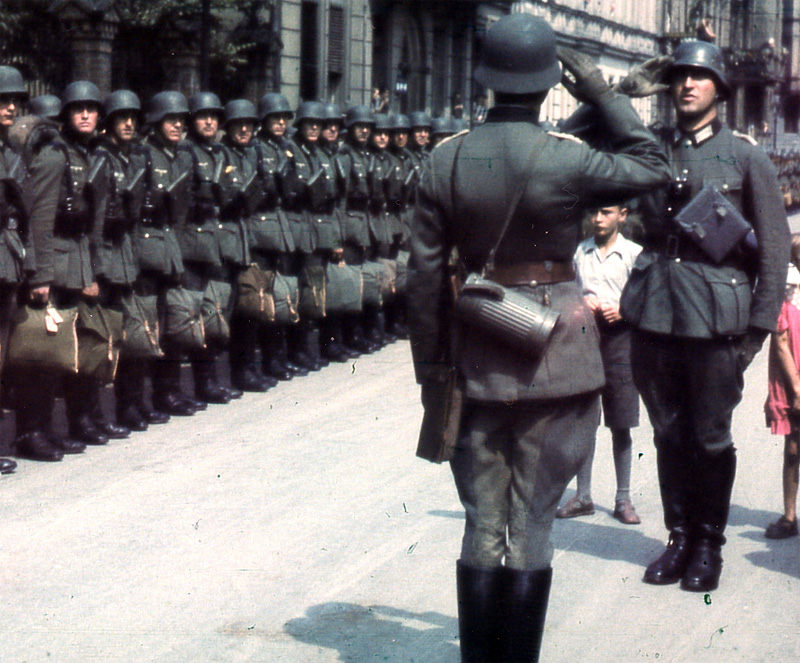 |
21 January 1941
Mr G M Bland, the
Billeting officer reported that additional evacuees had arrived
from Salford:
2nd January 1941 - 18 Teachers & 597 Children
13th January 1941 - 5 Teachers & 181 Children
It was resolved that the Town Clerk be requested to express to
the Salford Education Committee the keen disappointment of this
Committee at the lack of consideration and co-operation, and the
inadequate clothing and equipment of the children in the recent
evacuation, which had made the task of billeting extremely
difficult.
|
22 January 1941
British and Australian
forces capture Tobruk and took 25 000 Italians prisoners of war.
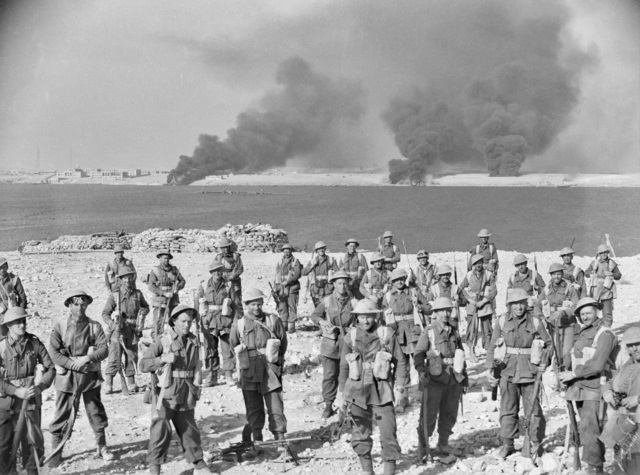 |
23 January 1941
Lancaster City Council
agreed that Ryelands park football ground had been let to a Unit
of the Royal Army Service Corps stationed in the district for
the remainder of the season, free of charge.
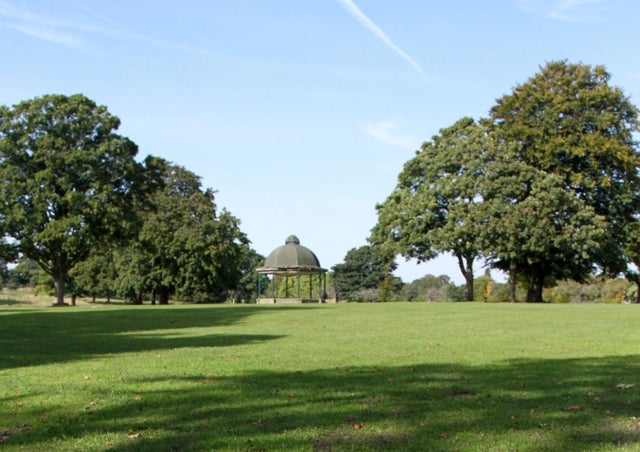 |
24 January 1941
U.S. Secretary of the Navy
Frank Knox sent Secretary of War Henry L. Stimson a letter
warning of the possibility of a surprise Japanese attack on
Pearl Harbour.
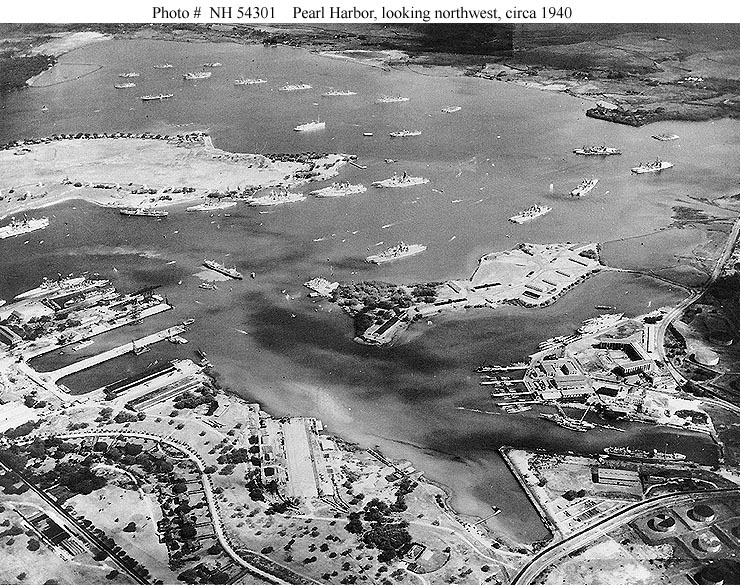 |
25 January 1941
The Lancaster City
Engineer submitted a communication from the Ministry of Home
Security, Camouflage Branch, that it had been decided that the
Giant Axe Field should be camouflaged and that the cost thereof
would rank for 100 per cent Government grant.
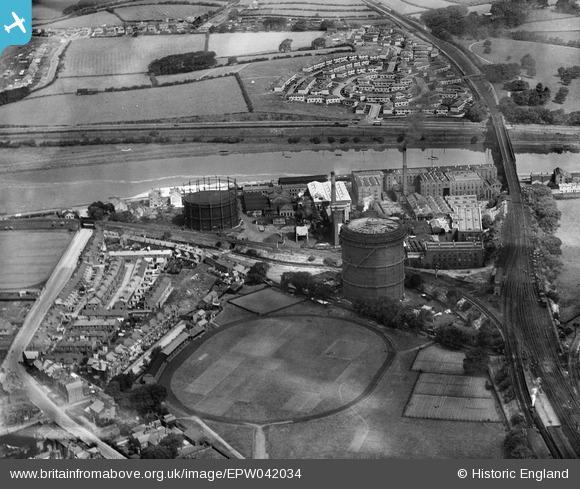 |
26 January 1941
Allied Troops capture
Derna in Libya
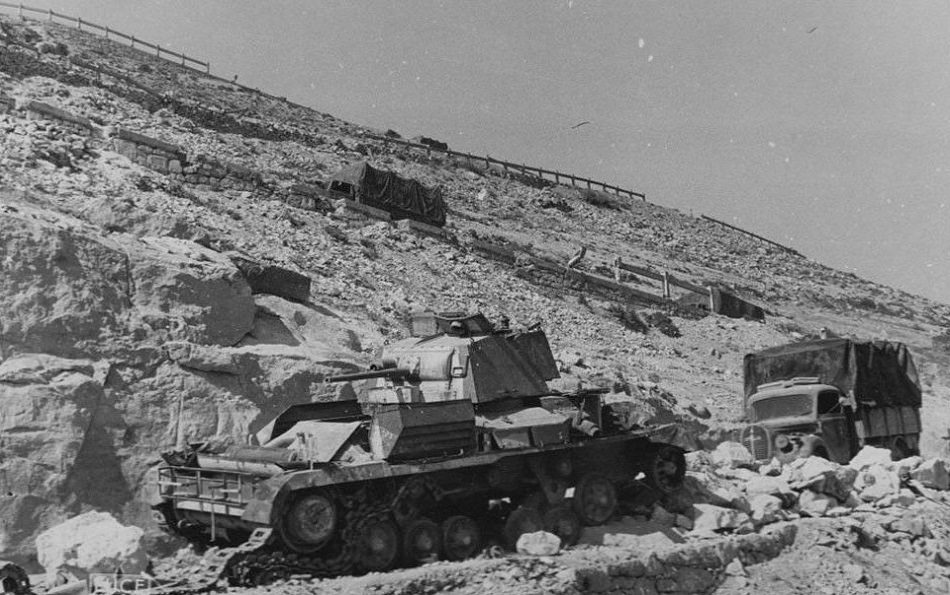 |
27 January 1941
Allied shipping docked in
the harbour at Tobruk for the first time.
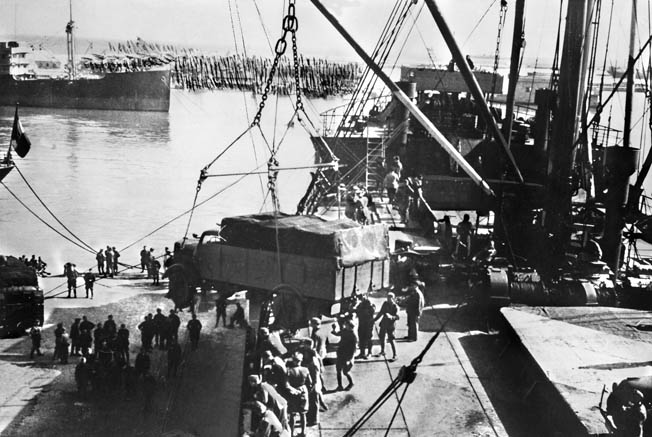 |
28 January 1941
The Chairman, Town Clerk,
City Engineer and Chief Constable of Lancaster City went to
inspect bombed areas at Birkenhead and Wallasey on 28th January
1941 for the purpose of obtaining information on various
matters.
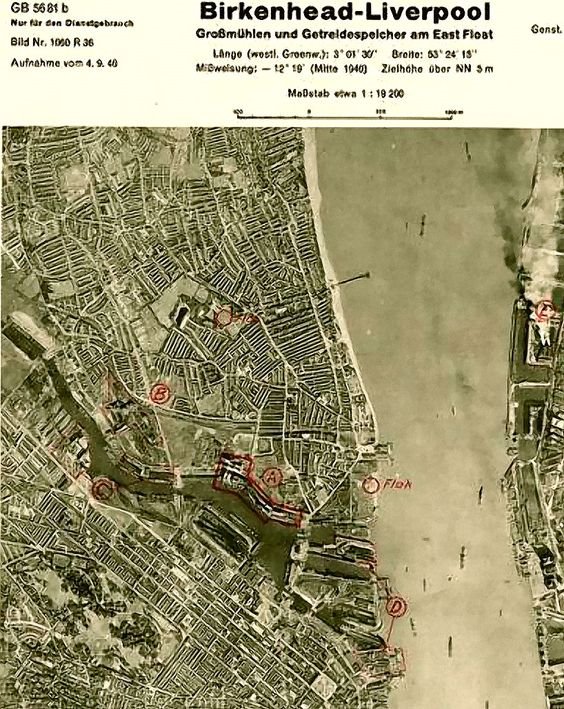 |
29 January 1941
The Ashton Hall was hired
by the King’s Own Royal Regiment, on 29th, 31st January and 1st
February 1941 for Concerts in aid of the Comforts Fund.
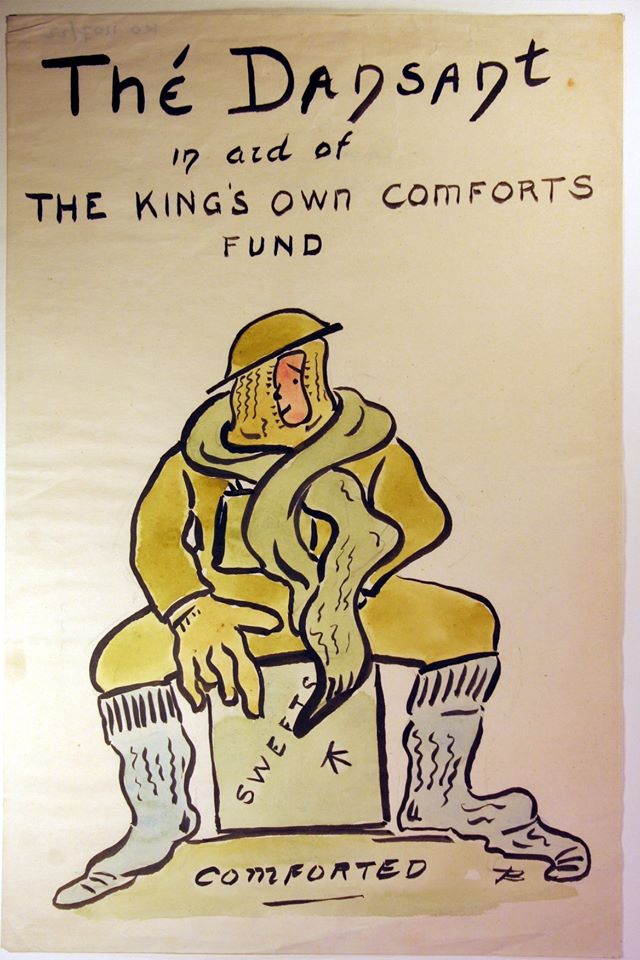 |
30 January 1941
The German leader declared
that any ship carrying aid to England within the range of the
German U-boats would be torpedoed.
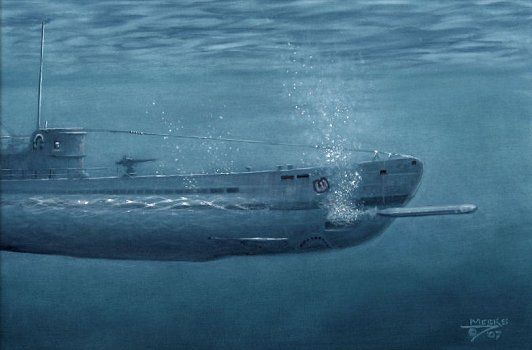 |
31 January 1941
In the Western Desert the
capture of Kufra Basin began in the Libyan desert.
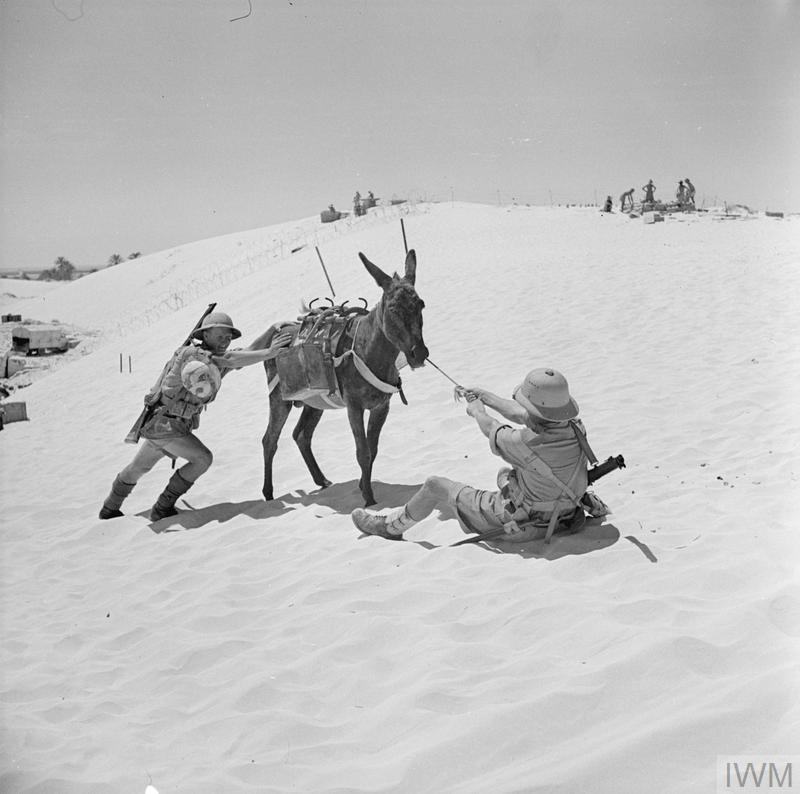 |

































